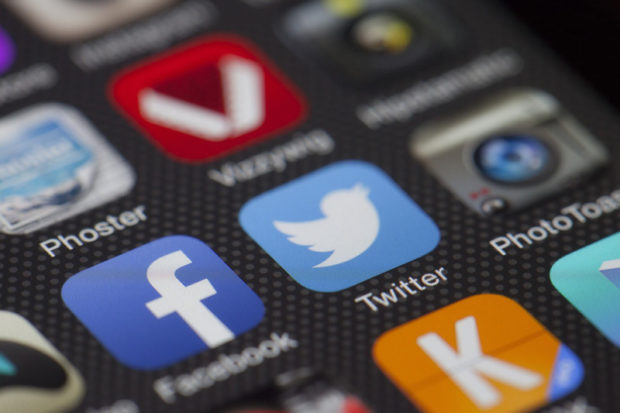Facebook, Twitter suspend Russian network ahead of election
OAKLAND, California — Facebook said Tuesday that it removed a small network of accounts and pages linked to Russia’s Internet Research Agency, the “troll factory” that has used social media accounts to sow political discord in the U.S. since the 2016 presidential election.
Twitter also suspended five related accounts. The company said the tweets from these Russia-linked accounts “were low quality and spammy” and that most received few, if any, likes or retweets.
The people behind the accounts recruited “unwitting” freelance journalists to post in English and Arabic, mainly targeting left-leaning audiences. Facebook said Tuesday the network’s activity focused on the U.S., U.K., Algeria and Egypt and other English-speaking countries and countries in the Middle East and North Africa.
The company said it started investigating the network based on information from the FBI about its off-Facebook activities. The network was in the early stages of development, Facebook added, and saw “nearly no engagement” on Facebook before it was removed. The network consisted of 13 Facebook accounts and two pages. About 14,000 accounts followed one or more of the pages, though the English-language page had a little over 200 followers, Facebook said.
Still, its presence points to ongoing Russian efforts to disrupt the U.S. election and sow political discord in an already divided country. To evade detection, the people behind the network recruited Americans to do their bidding, likely unknowingly, both as journalists and as people authorized to purchase political advertisements in the U.S.
Facebook said the people behind the network posted about global events ranging from racial justice in the U.S. and the U.K., NATO, the QAnon conspiracy, President Donald Trump and Joe Biden’s presidential campaign. The network spent about $480 on advertising on Facebook, primarily in U.S. dollars. However, Facebook said less than $2 worth of those ads targeted the U.S.
The network’s posts directed people to a website called PeaceData, which claims to be a global news organization that, according to a report by research firm Graphika, “took a left-wing stance, opposing what it portrayed as Western imperialism and the excesses of capitalism.”
The FBI said in a statement Tuesday that it provided information to the platforms “to better protect against threats to the nation’s security and our democratic processes.”
“While technology companies independently make decisions regarding the content of their platforms and the safety of their members, the FBI is actively engaged with our federal partners, election officials, and the private sector to mitigate foreign threats to our nation’s security and our elections,” the statement said.
Separately, Twitter said Tuesday it will start adding context to its trending section, which shows some of the most popular topics on the service at any given moment. Experts and even Twitter’s own employees have expressed concerns that the trending section can be gamed to spread misinformation and abuse.
Twitter uses algorithms and human employees to determine what topics are trending — it is not simply the most popular topics, but topics that are newly popular at any given time. But it’s not difficult to artificially elevate trends.
In the coming weeks, Twitter said, users in the U.S., U.K., Brazil, India and several other countries will see brief descriptions added to some trends to add context.
“To be clear, we know there is more work to do to improve trends and the context updates we’re announcing today are just a small step in the right direction,” said Liz Lee, a product trust partner and Frank Oppong, a product manager, in a blog post. “We need to make trends better and we will.”
